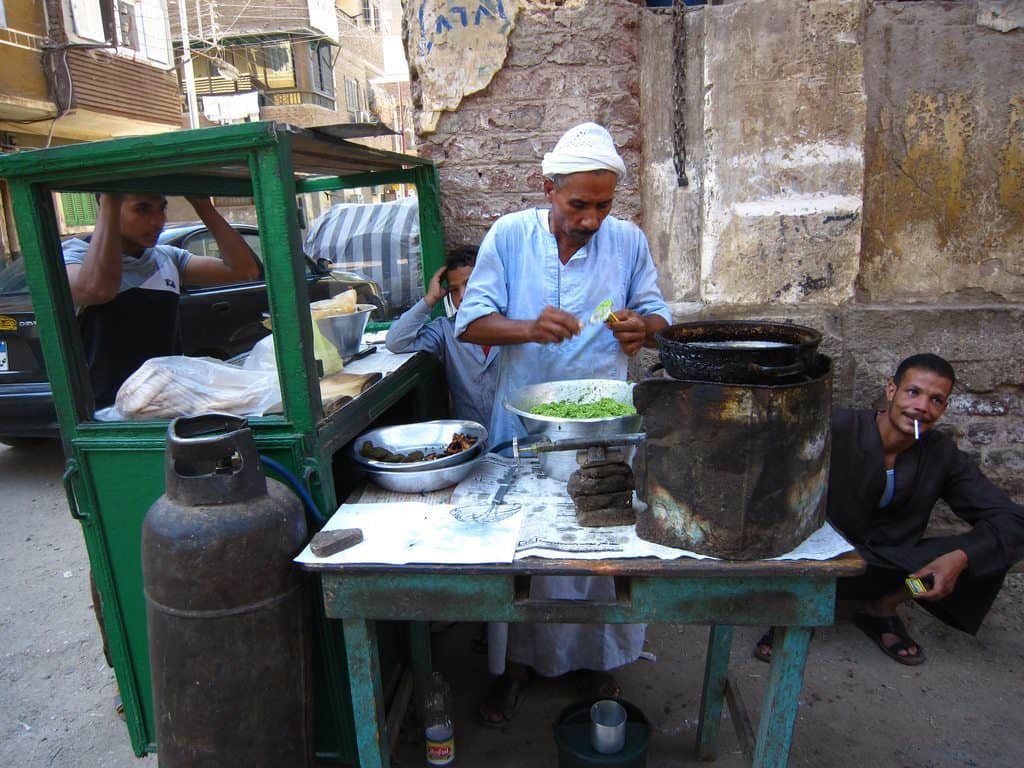This is the story of the Falafel Man, a humble man selling the most delicious falafel I’ve ever tasted in a side street in Luxor.
We arrived in Luxor on a cruise boat from Aswan. Our host there not only had organized the $30 a night all-inclusive cabin for us, he had also recommended we stay at his mate’s Boomerang Hotel, not far from the train station. We had the place almost to ourselves. It was the middle of July and the air condition made that we barely left our room between eleven in the morning and four in the afternoon.
Still, we needed to eat and I neither liked to throw too much money at the tourist restaurants nor did I like the greasy fare some of the local joints served.
Luckily we found the falafel man just a few steps from the Boomerang. I had never before and have not since had better falafel: moist, yet with a nutty crunch, light yet filling.
He arrived every day late in the morning in a small dusty side street to set up his little green stall, that otherwise sat quietly in a corner. Across the butcher’s sons were playing with a cow head, above colorful sheets were lazily wafting in the barely there breeze.
The falafel man always wore a light blue gallebaya, the traditional long shirt, and a white turban-like hat. He always had two large metal bowls: one with chopped aubergine and one with the light green falafel mix. He always stayed until he ran out of falafel mix. Sometimes that would be two hours. Sometimes more.
He’d carefully form the falafel balls, always the same size, then drop them into the hot oil and wait, turn the falafel and wait a bit more. After a dozen or so falafel balls he’d fry
He’d open a pita bread, put in a few bits of aubergine, refreshingly cool tomato, and cucumber cubes and top it off with two falafel balls. Then he’d wrap the sandwich in pages from an old school book and ask for 2 Egyptian Pound*. He did all this with consideration, never hastily, regardless of how many clients were waiting to be served. He smiled but never grinned. And — in contrast to some of his colleagues we’d met along the way — he served everyone equally, even when a group of young men yelled at him for continuing to prepare our, the foreigners’, four sandwiches, he disregarded them and shyly smiled at us, all the while continuing in his same rhythm.
The pages of his wrapping paper had been scribbled on. They were maths and language books. I imagined this modest falafel man going home to his modest house, greeting his wife and proudly watching his children as they did their homework before sitting down for one last falafel sandwich for dinner.
One morning the falafel man gestured to us that he wouldn’t be back the next day. We were disturbed: where would we get our breakfast, lunch, and dinner from? He shrugged: “Ramadan.”
===
*in July 2012, 1 US-$ equaled 6 Egyptian Pounds

